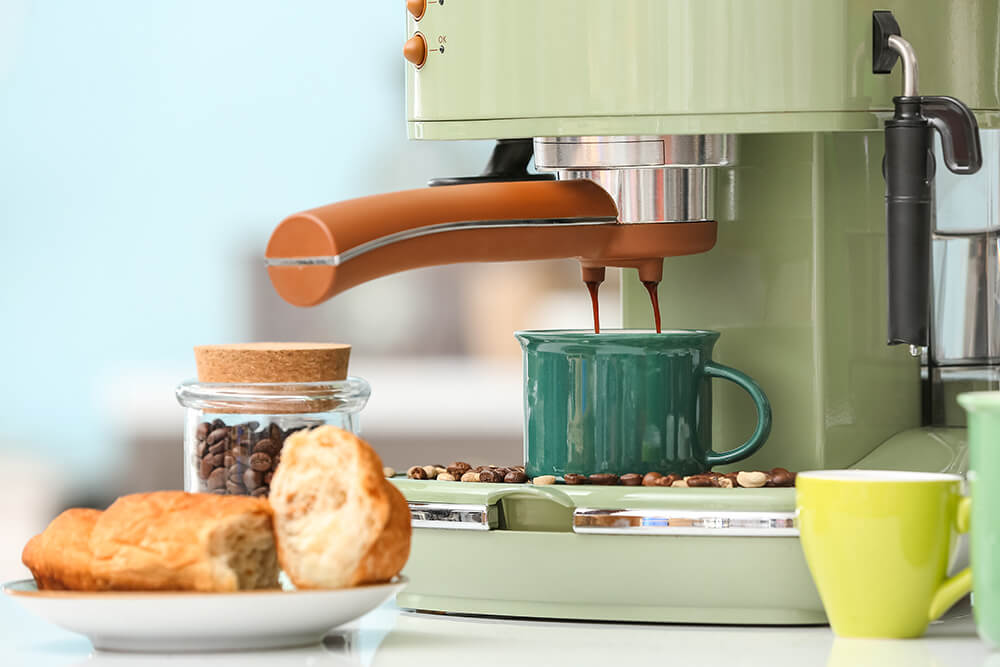There are thousands of articles out there that claim the smell of freshly-brewed coffee and painting your walls yellow will help you sell your home faster, and for a better price. Understandably, you might be sceptical – after all, it can’t be that easy, can it?
Well, we did some investigating and you may be surprised by what we’ve found. Let’s take a look at just how much the subconscious has an impact on homebuying decisions.
We’re all emotional buyers
According to Antonio Damasio, Professor of Psychology, Philosophy & Neurology at the University of Southern California, emotions play a key role in almost every buying decision. While deciding whether to put an offer down on a property requires a lot more logical thinking that buying a chocolate bar, there’s no denying it is a very emotional purchase. This property won’t just be where you rest your head for the next few years, it could be where you bring up a family, spend time with loved ones and the place in which you’ll unwind. It needs to tick many boxes, yes, but in the end, the chances are you’ll go with your heart, and not your head.
There’s research to back this up, too. More than half (56 per cent) of homeowners made an offer on their property simply because they ‘fell in love with it’, a survey from My Home Move revealed. That’s a lot of buyers who are putting their gut feelings above anything else.
Try as you might to channel your inner Mr Spock and think logically, there are a lot of factors that can influence you without you even being aware of them. 95 per cent of all buying decisions are made subconsciously, according to Harvard Business School professor Gerald Zaltman. That’s not all that surprising when you consider our brains process 11 million bits of sensory information per second.
How to target the homebuyer’s subconscious
Now that we know that the little things do have a big impact on convincing buyers to put down an offer, what can you do to capitalise on that? Let’s take a look at the three things that have the most significant impact on the subconscious: colour, sound and smell.
Colour
Yellow evokes happy emotions, which is why so many brands love to use it in their marketing. While you might not want to paint every wall in your home McDonald’s yellow, a paler, more neutral shade may have a positive effect. If anything, it will certainly brighten up your rooms. Alternatively, inject a small amount of yellow here and there – a vase of fresh sunflowers or daffodils is sure to go down well.
Sound
You want potential buyers to feel relaxed and at home while they walk around the property, so why not try provoking that emotion using some gentle sounds? A trickling water feature or some classical music may do the trick. Just make sure that music isn’t too loud, or it will become distracting. In winter, try lighting the fire instead. The crackling sound will make your home feel warm and cosy.
Smell
Different smells can certainly have a big impact on emotion, as they tend to bring back particular memories. Warm scents such as vanilla and cinnamon are comforting and can help your home appear cosy and snug (perfect in winter). However, freshly-baked goods and coffee will make any property feel more like a home. These smells could help buyers better imagine living here, especially if the scent happens to be of something they cook often.
Logical reasons to pay attention to the psychology of home selling
If you’re still not convinced that positive smells, sounds and colours can impact the saleability of your property, then here are some more logical reasons for paying attention to these three senses:
Buyers hate stinky properties
We’re not just talking about a smelly bin or some dirty dishes – even the smell of bleach can be incredibly off-putting, as it indicates you had to rush to deep-clean your house last second. We’re talking pets and cigarettes mainly, though a musty smell can indicate the presence of mould and mildew, so give your home a good airing before that viewing.
Dramatic décors can darken a home
Unless you’re Dracula, no one wants to live in a dark and dingy home, which is exactly why you should neutralise your décor, and get rid of any deep-coloured rooms. Don’t opt for bright white walls, though, as your home will seem too clinical and cold.
Noise is a no-no
Whether it’s arguing neighbours or a busy road, noise is a huge turn-off for buyers. They want to be able to live in peace, so a subtle attempt to cover up or distract from negative sounds can work quite well.
Too much clutter leaves no room for imagination
Family photos, ornaments and collectables can make a home appear cluttered and messy, but most importantly, it prevents buyers from being able to imagine living there themselves. We highly recommend storing away any knick-knacks while your house is on the market.
There you have it – a bit of baking and brewing can go a long way! However, there’s much more to selling a home than the above. If you would like more tips, check out our guide to selling or give one of our branches a call – we’d love to help.

